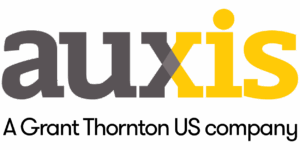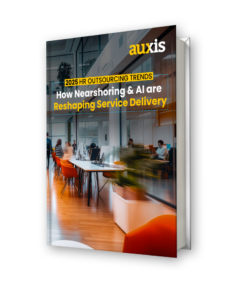In brief
- Employee expectations are rising. 85% of workers feel HR is indifferent to their needs, and 67% struggle to get timely responses from HR.
- HR teams are overwhelmed. 92% of HR leaders say lack of time and staff is their top barrier to achieving strategic HR goals.
- Implementing a help desk HR solution frees HR experts to handle complex inquiries and reduces burnout.
- HR service desks can reduce cost to serve by up to 50%, especially when nearshored to Latin America and enhanced with AI-powered self-service tools like chatbots and knowledge bases.
HR teams weren’t built to answer questions such as “How do I reset my benefits?” 20 times a day. Yet, many spend a significant portion of their time on repetitive, low-value tasks that divert their attention from strategic priorities like talent development, retention, and culture-building.
Without a formal HR help desk, routine questions pile up, inboxes overflow, and the most experienced HR talent is stuck firefighting instead of driving meaningful change.
Even for organizations investing in automated solutions, 100% end-to-end HR automation remains out of reach. There will always be exceptions, edge cases, and questions that require a human touch.
That’s where an HR help desk comes in. Just like IT help desks have transformed technical service, an HR help desk provides a scalable structure to streamline employee support while freeing your core HR team to focus on high-impact initiatives.
While common among large enterprises with thousands of daily HR requests concerning employee benefits, payroll, reference letters, and more, many fast-growing mid-market organizations have yet to implement this HR best practice, thereby missing a valuable opportunity to scale HR without scaling cost or complexity.
In this article, we explore the top 5 benefits of creating an HR help desk for your business.
1. An HR service desk offers faster, better employee support
When employees have HR questions, where do they go? Without a formal HR support desk, the answer is often unclear. Some reach out to HR managers they know, others ask the wrong people, and many are stuck waiting for HR staff who have the answers but are too busy to respond quickly — unsure if or when they’ll get a response.
This lack of structure and defined SLAs for response times leads to delays, inconsistencies, and employee dissatisfaction. When employees don’t feel heard or supported, frustration sets in, engagement suffers, and turnover risks rise.
MyPerfectResume 2025 State of the Workforce Report shows that 85% of employees feel their HR department is indifferent to their needs, while 67% say it’s difficult to get a timely response from HR. Slow HR response times directly undermine HR’s top priorities: attracting talent, improving retention, and strengthening company culture.
A centralized help desk HR solution helps close that gap. With a dedicated team measured on formal SLAs and key performance indicators like first-call resolution and satisfaction scores, HR service delivery becomes faster, more reliable, and focused on continuous improvement, elevating the overall employee experience and reshaping how HR is perceived across the organization.
2. A human resources help desk provides the lowest cost to serve
Centralizing and standardizing routine HR support through an HR help desk cuts costs without compromising on service quality — crucial at a time when 55% of HR organizations are underfunded, and nearly half report being understaffed (2024 HRCI & MindEdge Report).
Choosing an HR help desk partner in top nearshore markets like Costa Rica and Colombia takes those savings to another level, with LATAM labor arbitrage averaging 30-50% compared to U.S. equivalents. In fact, 18% of organizations operating in Latin America report cost savings above 40%, while 50% report savings in the range of 20-40%.
Beyond cost, nearshore HR help desks bring additional advantages: strong time zone alignment, high English proficiency, neutral accents, cultural compatibility, and a well-established pool of trained, experienced talent. For instance, Costa Rica stands out as the top HR shared services hub outside the U.S., thanks to its long-standing track record with Fortune 500 HR operations that developed a deep pool of HR talent with the same expertise in U.S. labor policies and compliance standards you can find at home.
These factors accelerate onboarding, reduce attrition, and ensure alignment with company policies and service expectations. See how Auxis helped a Fortune 50 retailer solve offshore support challenges by implementing a high-performing Level 1 and 2 HR Support Desk in Costa Rica.
Quality HR help desk providers further lower operating costs with instant access to automation, best practices, and self-service capabilities that drive greater efficiency.
Suddenly, in-house HR professionals with more years of experience will be able to spend their time on more complex activities that are more applicable to their cost and skills. Your overall cost to serve will also drop as the greater visibility and continuous improvement mindset gained by measuring productivity and KPIs on an ongoing basis leads to greater efficiencies.

3. HR help desk process maturity improves onboarding and retention
Implementing an HR help desk requires building and maintaining clear process documentation and training materials. This level of process maturity not only strengthens internal controls but also accelerates onboarding and training for new staff, positioning your organization to scale effectively as the business grows.
Refined HR processes extend beyond operational efficiency—they directly impact employee retention. AIHR (Academy to Innovate HR) reports that strong onboarding improves new hire retention by 82% and productivity by 70%, while nearly 30% of employees leave within 90 days due to poor onboarding processes or HR support.
A well-structured HR help desk transforms the onboarding experience by standardizing processes and delivering consistent, high-quality support. When new hires have access to clear documentation, effective training, and responsive support, they’ll feel empowered and more inclined to stay.
4. An HR support desk keeps your internal team focused on strategic priorities
Human resources departments are navigating a myriad of challenges, from talent shortages and evolving workforce expectations to the imperative of fostering inclusive cultures and driving organizational agility. Amidst these demands, administrative tasks consume valuable time and resources, distracting HR personnel from executing critical initiatives.
A whopping 92% of HR leaders identified a lack of time and dedicated personnel as the biggest barrier to achieving their department’s goals, according to Society for Human Resource Management (SHRM). Gartner reinforces this challenge, noting 76% of HR leaders say their managers are overwhelmed by growing responsibilities. An HR Help Desk helps relieve that pressure, freeing up your most skilled HR professionals to focus on high-impact initiatives such as talent development, career growth plans, and employer branding.
Also, self-service powered by modern HR help desk software is now central to modern human resources help desks. With AI-powered chatbots and knowledge bases, employees can handle repetitive tasks like payroll updates and policy questions on their own, submit requests, and receive immediate answers even from their mobile devices. This HR outsourcing trend not only improves employee satisfaction, but frees HR teams to focus on more complex, strategic work.
5. Implementing an HR help desk solution alleviates HR burnout
With talent challenges as a front-and-center concern across industries, an effective HR department has become highly critical to business success. But the immense pressure is making HR team burnout a real issue.
SHRM’s 2024 research shows that 75% of HR professionals say their roles are emotionally exhausting and nearly half acknowledge that working in HR has taken a toll on their mental health. This emotional toll contributes to higher turnover rates among HR staff.
The 2024 MindEdge/HRCI survey found 74% of HR professionals have seen a rise in employee burnout in their organizations, with about a quarter noting a major uptick. That’s a double burden for HR teams managing their own burnout while trying to support everyone else’s.
Implementing an HR help desk process can ease the load. By automating routine inquiries, standardizing HR support processes, and taking daily duties off their plate, HR professionals can focus on higher-value, fulfilling work. The results are less burnout, happier HR teams, and better employee retention.

How to get started with your HR service desk
If these HR help desk benefits resonate with you, the next step is to map out how to implement an HR service desk that aligns with your structure, goals, and workforce needs.
To guide your planning and design phase, start by answering the following questions:
- Do we have the scale to justify an HR service desk?
- How many team members do we need based on our employee headcount and expected inquiry volumes?
- What HR help desk systems and communication channels (e.g., ticketing platforms, chat, email) will we need to ensure seamless support?
- Which HR processes should be in scope (e.g., payroll, benefits, onboarding) for our HR service desk?
- What type of process documentation and knowledge base must we develop to effectively train the new HR service desk team?
- Which KPIs should we track to measure team performance?
- Do we require multi-language support or extended hours of operation?
- How should we reassign responsibilities within the broader HR team once Level 1 support is in place?
- Should we build the HR service desk in-house or partner with an experienced HR outsourcing provider?
- What are the projected costs and what does the business case look like?
Why Auxis: A seamless extension of your HR team
From reducing cost-to-serve and improving employee satisfaction, to easing the burden on your core HR team, the benefits of a human resources help desk organization are clear. But success comes from designing a model that aligns with your operating reality, people strategy, and performance goals. That’s where Auxis comes in.
With nearly 30 years of HR transformation experience, Auxis has helped organizations across industries implement high-performing HR service desks powered by nearshore talent, smart automation, and best-in-class process design.
Whether you’re just starting your HR transformation journey or scaling what’s already in place, we’ll help you build an HR support model that delivers results from day one.
Schedule a consultation with one of our HR experts today or visit our resource center to learn more about HR trends, strategies, and outsourcing success stories. Don’t miss our case study that shows how Auxis helped a client achieve 99.6% employee satisfaction with a nearshore HR help desk.
Frequently Asked Questions
What is an HR help desk?
What are the benefits of implementing an HR support desk?
How do I know if my company needs an HR help desk?
How does an HR service desk improve organizational scalability?



